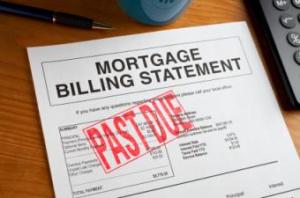 If you are facing or considering the home foreclosure process, you’re not alone.
If you are facing or considering the home foreclosure process, you’re not alone.
Ask Yourself…
- Are you stressed out about your mortgage payments?
- Are you having trouble deciding if it makes financial sense to walk away?
What is Strategic Default?
A Strategic Default is when a borrower decides to stop paying a mortgage even though they may still be able to afford the payment. When the value of a property has fallen far below the mortgage debt and recovery of the equity lost is expected to take years, a borrower may elect to default based on the mortgage contract. When a homeowner strategically defaults on their home, they are following the mortgage contract that states that in the event of default or non-payment of a mortgage loan, the home shall serve as collateral and the lender has the right to sell the property to get back the borrowed money. Going deeper into debt to pay for a home with negative equity may be financially unwise. A Strategic Defaulting homeowner will use the law to their advantage, by strategically and legally securing for themselves a more favorable financial position.
What is the difference between a Strategic Default and just walking away?
Homeowners who can afford to make their mortgage payment, but choose to stop paying are strategically defaulting. Strategic defaulters have calculated the risks, the time they will take to recover from a foreclosure, and the long-term financial benefits of letting go of the bad investment.
Homeowners who walk away from their property cannot afford to continue making mortgage payments. These homeowners are experiencing significant hardship in keeping up with their overpriced mortgage payment month after month. These hardship cases can be contributed to predatory lending practices which set the borrower up with an unreasonable exploding ARM, the faltering market and economy, loss of employment, or the big banks refusing to modify loans. Homeowners who chose to walk away have said, “Enough is enough!” By walking away from their underwater property, these homeowners are able to take significant steps toward financial freedom.
Q: Dear Steve,
I bought a home two years ago that’s now worth $120,000 less than I paid for it. Ouch! What’s more, the bank won’t touch a refinance. But I do have about $80,000 in savings. If I used it for a down payment to buy another home, then let the other go into foreclosure, could the bank come after the equity in the more recently bought home? Yes, it’s a shady thing to do, but I feel it’s my only option.
A: I have been besieged with similar questions. First, it’s unlikely but not impossible that the bank would go after your equity in such a scenario. That said, I can’t in good conscience just say go ahead and arrange such an “intentional foreclosure,” even as the practice becomes increasingly common, particularly in parts of the country that saw huge artificial run-ups in home values earlier this decade.
The first effort on the part of borrowers should always be to seek loan remediation agreements with their lenders/servicers. However, based on media and trade reports, there have been relatively few good outcomes from attempting to do this. The reality is that there are tens of thousands of people out there in similarly challenging situations who are watching as homes just like theirs sell for far less than what they still owe.
I must note that there’s no absolute guarantee in most states that a buyer can just buy another house and walk away unscathed from the other one, aside from absorbing that big, ugly credit splotch, of course. That’s because states often give lenders latitude to sue borrowers in such cases.
However, such “recourse” practices are seldom employed these days because of the expense and the fact that people in these upside-down situations typically have little nonhousing wealth to pursue. Ironically, some credit experts say it will be faster and easier to re-earn a decent credit score after a foreclosure than after a bankruptcy — especially if you have established a new mortgage in the interim.
There are numerous blogs dedicated to the practice that you’re considering and some businesses, such as San Diego-based You Walk Away. Opponents to your strategy have called this “underhanded,” “cheating,” “unethical” and say that agents who facilitate this practice are just coaching people into bigger mistakes. Others say it’s the only way for some people to emerge as homeowners out of this mess.
Hopefully, there’s an important history lesson here for an industry that aggressively marketed so many risky low-down-payment or 100-percent loans with ARMs attached and a government that at least tacitly encouraged them. It’s actually an old lesson: The less skin you have in the game, the easier it is to walk away from the table.
If you do proceed, you would be wise to spend a little of that $80,000 nest egg on a legal representative to review your loan documents to determine if you will be on the hook for anything.
Article courtesy You Walk Away, and Steve McLinden BankRate
